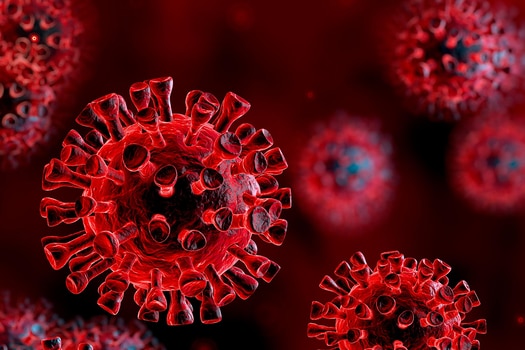Melbourne (Victoria State Media Release, 14 July 2023): The seven-day rolling average of patients with COVID in Victorian hospitals is 137, a decrease of 11 percent from last week. There are currently 142 COVID patients in Victorian hospitals.
There are currently 8 COVID patients in intensive care. There are 2 cleared cases in ICU. There are 4 COVID patients on a ventilator. The seven-day rolling average of patients in intensive care in Victorian hospitals is 8. In the past three months, 3,541 COVID patients were hospitalised in Victoria.
seven-day rolling average of patients in intensive care in Victorian hospitals is 8. In the past three months, 3,541 COVID patients were hospitalised in Victoria.
Of Victorians aged 18 and over, 19 percent have recorded a vaccination or COVID diagnosis in the past six months. This means 4.2 million Victorians are eligible for a 2023 booster dose.
Of Victorians aged 65 and over, 50 percent have recorded a vaccination or COVID diagnosis in the past six months. The remaining 50 percent are recommended to receive a COVID vaccine whenever possible. Of Victorians aged 50 to 64, 21 percent have recorded a vaccination or COVID diagnosis in the past six months.
A total of 39 COVID-related deaths were reported to the department in the past week. An average of 6 deaths were reported each day in the past week.
543 positive PCR tests were reported to the Department in the past week. The recommendation to report positive RATs was removed on 30 June.
The total number of reported COVID-related deaths in Victoria since the pandemic began is 8,189.
Epidemiological summary
Covid hospital admissions continued to decrease this week, with the level of Covid wastewater detections also at relatively lower levels. This indicates a sustained reduction in the number of infections in Victoria.
Transmissions continue to be driven by multiple Omicron recombinant XBB sub-lineages, accounting for 83 percent of circulating variants from wastewater surveillance. This includes XBB.1.16 (30 percent), XBB.1.5 (12 percent), XBB.1.9 (13 percent), and other mixed XBB sub-lineages (29 percent). Other variants include CH.1.1 (5 percent).
The department continues to monitor trends through Victoria’s comprehensive surveillance system, which includes analysis of hospitalised COVID-19 cases, mortality, wastewater surveillance, PCR results, and range of other state and national surveillance systems.
Steps to protect yourself and others
Protecting yourself from getting infected is the best way to protect yourself and the community. If you don’t get Covid, you can’t spread Covid.
These six steps can help you stay ahead of Covid:
- Wear a mask: a high-quality, well-fitted mask can protect you and others from the virus.
- Get your 2023 booster: new bivalent vaccines targeting Omicron variants are available at your GP or local pharmacy. To find out if you’re eligible for your next booster, visit the Coronavirus website. Flu vaccines are also now available.
- Let fresh air in: open windows and doors when you can – it reduces the spread of the virus.
- Get tested: if you have symptoms, take a rapid antigen test.
- Stay at home: if you have Covid, you should stay at home for at least five days and until you have no symptoms.
- Talk to your doctor: if you are at risk of falling very sick, you may be eligible for Covid and influenza medicines – and early testing and diagnosis are important. With expanded criteria, more people are now eligible for Covid medicines.
2023 boosters
Eligible Victorians who have not had a Covid vaccination or confirmed infection in the past six months can now receive their 2023 booster. This is irrespective of how many prior doses a person has received. Vaccination continues to provide the best protection against becoming severely unwell or dying from Covid.
For those not infected or vaccinated in the past six months, a 2023 booster is recommended for:
- All adults aged 65 years and over
- Adults 18-64 years who have medical comorbidities or disability with significant or complex health needs.
For those not infected or vaccinated in the past six months, a 2023 booster should be considered for:
- Adults 18-64 with no risk factors for severe Covid
- Children and adolescents aged 5-17 who have medical comorbidities or disability with significant or complex health needs.
Victorians are encouraged to book a free booster appointment through their local GP or pharmacy. You can find your nearest vaccination provider through the Health Direct Service Finder.
RATs available through local councils
All Victorians are eligible to pick up two free packets of rapid antigen tests (RATs) through their local council.
The council RAT distribution program is currently operating across more than 400 local sites, such as libraries and council customer service centres. The program is open to all Victorians, with all eligibility requirements now removed.
Individuals can collect up to two packets for themselves plus up to two packets for each household member per visit, while people with a disability or their carer can collect up to four packets of tests.
Testing, especially with compatible Covid symptoms, is critical to help with early detection and protect others. It also allows for appropriate care and timely treatment.
Contact details for participating councils can be found at the Coronavirus website.
Antivirals and other medicines
Oral antiviral medications remain highly effective against all currently circulating Covid subvariants to reduce severe disease and prevent death.
From 1 July, people aged 50-69 with one additional risk factor for developing severe disease are eligible for antiviral treatments.
To access these medications, you need a prescription from an authorised prescriber, such as a medical practitioner or nurse practitioner. You do not need to register your RAT result to get a prescription.
Early testing for Covid and diagnosis are essential to access Covid medicines. For most Covid medicines to work best, you must take it within five days of getting sick – the earlier the better.
Information on eligibility can be found on the Coronavirus website.
[END]




